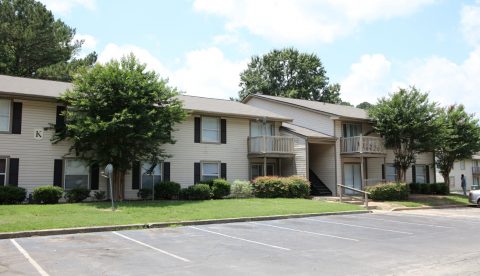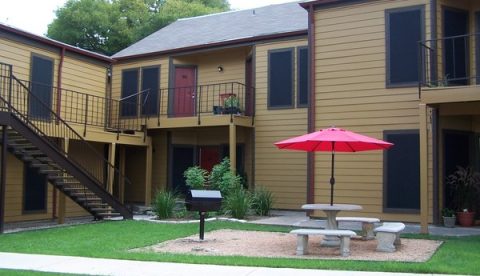How to Plan Ahead for Vacancies and Unpaid Rents on Multifamily Property
 It’s the last word a multifamily property owner wants to hear, even after “fire”. (You can insure against that.)
It’s the last word a multifamily property owner wants to hear, even after “fire”. (You can insure against that.)
“Turnover”.
Recruiting new tenants, especially to replace old ones, is among the most daunting tasks a landlord can have. In fact, turnover is often the single largest determinant of how much effort a rental property owner has to put into the job. It’s the difference between spending a minute or two getting a renter to re-up; and spending hours advertising, marketing, maybe even offering expensive incentives. To say nothing of the make-ready costs required every time a tenant moves out, no matter how pristine a condition he leaves the place in.
Unfortunately, vacancies are an inescapable part of landlordship. Fortunately, they can be minimized. Judicious landlords understand that it’s not realistic nor even desirable to have no zero-occupancy days. A reasonable amount of churn gives you a chance to make repairs without intruding on anyone’s privacy. It also makes higher rent increases more palatable, given that you’re a) offering a new and improved place to live, and b) renting to new tenants who don’t expect you to cut them a price break for loyalty.
Make Your Projections

It’s the fundamental truth of economics, which is at its core a science of human behavior: People respond to incentives. Raising rents, while making a landlord more money in the short term, will cause some tenants to balk and move somewhere less expensive. Keeping rents constant, or even lowering them, might discourage turnover. Yet it’s important not to lose sight of the object of operating a multifamily property. Which isn’t necessarily to fill as many units as possible, so much as it is to generate as much revenue as possible.
In that respect, vacancies aren’t the problem, forgone revenue is. An adept management company will gladly take a month or two of an unoccupied unit if that means an opportunity to improve that unit, replace the carpeting, strengthen the Wi-Fi signal, etc. And of course, raise the rent. Done correctly, preparing the unit for a new tenant should result in more revenue than would have been generated by merely focusing on keeping the unit occupied.
There’s another level to this. Much like in any other sales job, in multifamily housing there are prospects to generate and close. The days of waiting for potential tenants to show up and ask to rent a unit are over, assuming that they ever existed in the first place.
The multifamily housing market in the United States is estimated at 43 million: that’s the number of families and individuals who rent. More than a quarter of them spend most of their income on the roofs over their heads. Regardless of the style or size or exclusivity of a particular multifamily property, there’s always some subgroup of that 43 million whom the property can cater to. Nothing is one-size-fits-all, least of all the rental market.
Free Room, if not Board
To a purely logical property owner, the reaction to delinquent rent is simple: eviction, and subsequent bad feelings. After all, the renter is failing to live up to his end of a straightforward agreement: fixed payments in exchange for a place to live. What’s to debate?
Well, that’s why God invented penalties and late fees. No landlord wants to assess (and no renter wants to get stuck with) additional charges. On balance, the hassle of collecting them is rarely worth it. Late fees and other punitive measures are supposed to be a seldom-used deterrent, not a secondary source of income.
An ounce of prevention, etc. Most delinquent rent payments will make themselves evident long before they actually happen. They’re put into motion the moment a lease is signed. Which is to say, when a tenant with a propensity for paying late gets accepted in the first place. Diligently checking a prospective renter’s credit history will nip most difficulties in the bud.
Again, minimization is the watchword, not elimination. Even the best-intended tenants occasionally drop the ball and incur late fees. Once in a while, they even force you to evict them. But they do it far, far less frequently than tenants with poor credit ratings do. Once again, leveraging one’s time at the outset can pay dividends. A few minutes sifting through credit reports and paycheck stubs now will mean less chance of visits from the constable and lawsuits in the future.
In a worst-case scenario, with an indignant and insolent tenant who refuses to pay until escorted off the property and whose account is in arrears, the temptation is great to file suit in the hopes of eventually collecting and being made whole. Often, that means exsanguinating a stone. Which is often accompanied by the equally distasteful job of dealing with an attorney. Every case is different, and no one would expect a landlord to be less than fully apprised of his legal rights, but sometimes the least costly course of action is to let the offending tenant walk away, bindle in hand. Which shows again how important it is to discourage those kinds of tenants from signing leases in the first place.
One Last Word

Investing in real estate, particularly in multifamily properties, can be rewarding and profitable for the disciplined investor. That same disciplined investor ought to know that every investment has its negatives as well. Vacancies and unpaid rents are but two of them, albeit two of the most annoying ones. Dealing with them head-on is better than hoping that they’ll go away.
Making the decisions about how to minimize turnover while keeping rents as high as possible, or how to encourage tenants to pay on time, can be difficult and demanding. It’s not a job for even the most enthusiastic amateur. A smart passive multifamily investor doesn’t take on all the work, but rather will employ the services of a professional management company: one that knows precisely what steps to take when a set of keys gets returned or a rent check bounces.



























